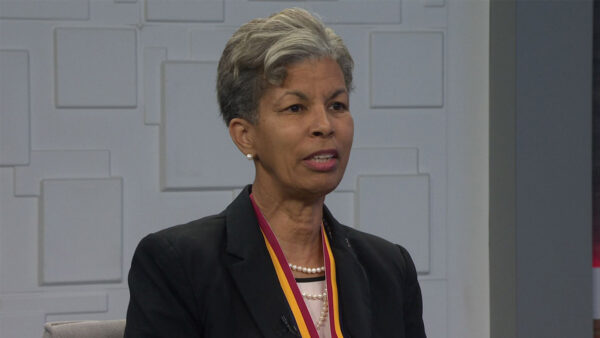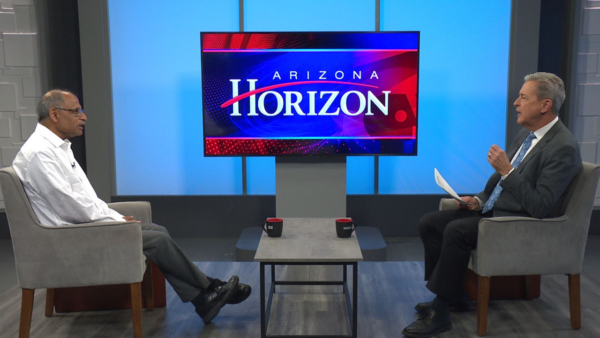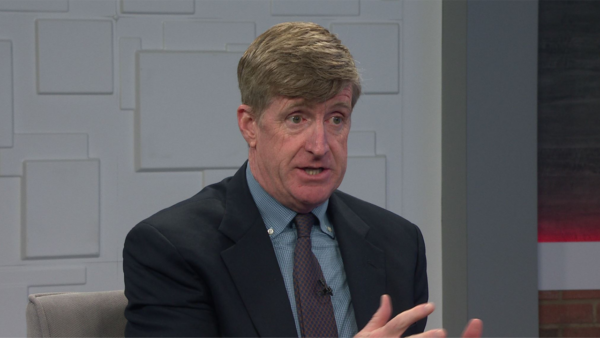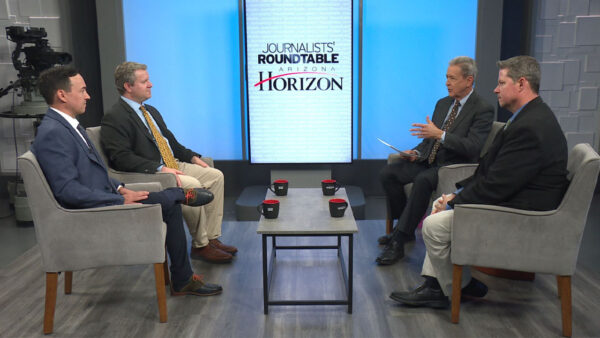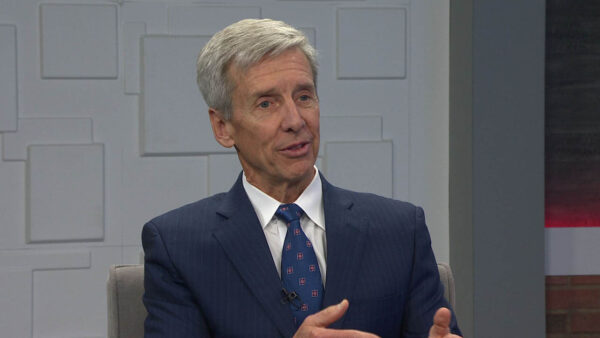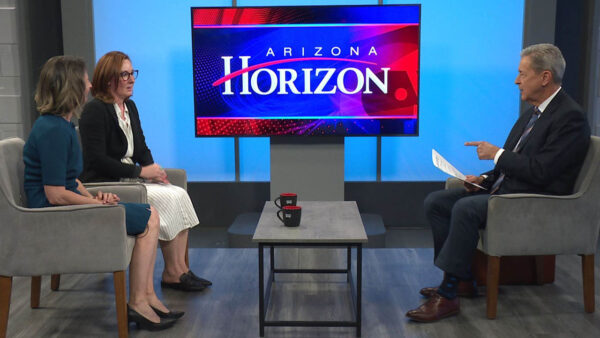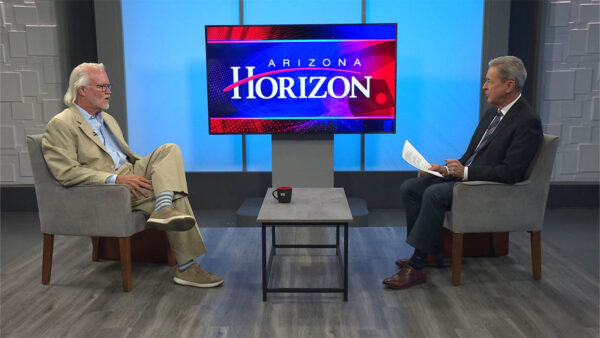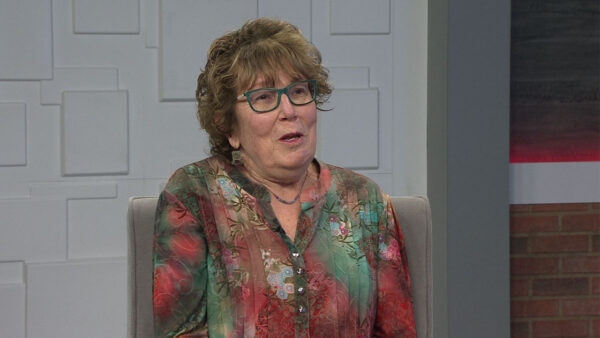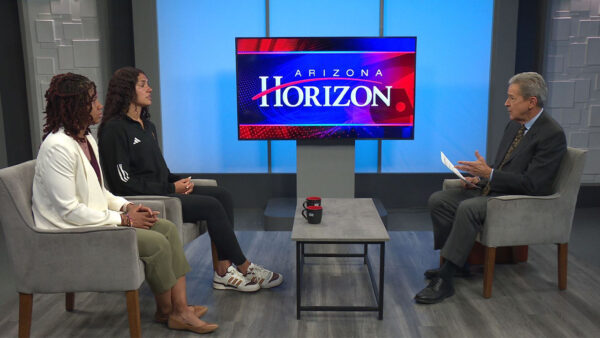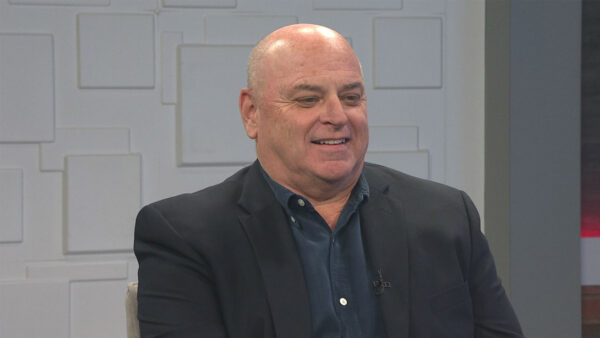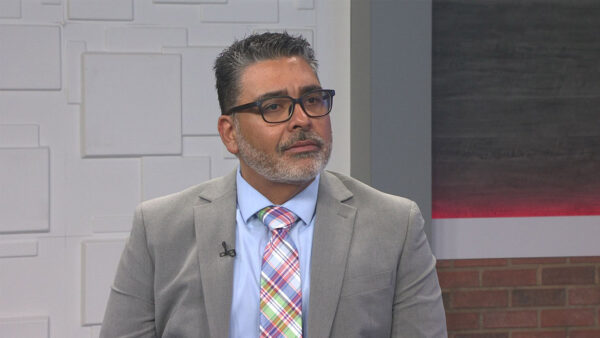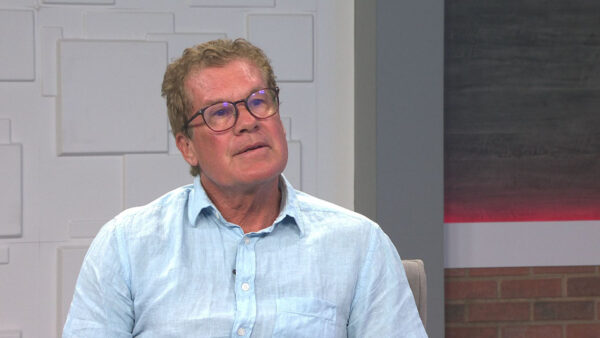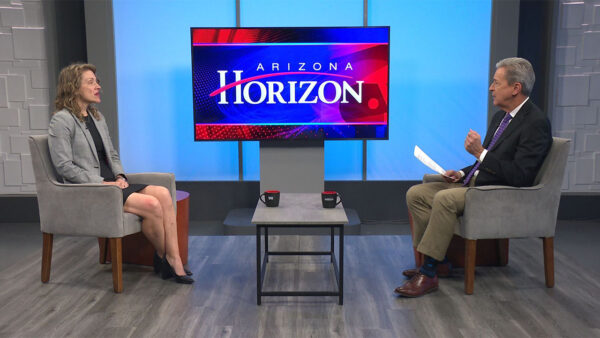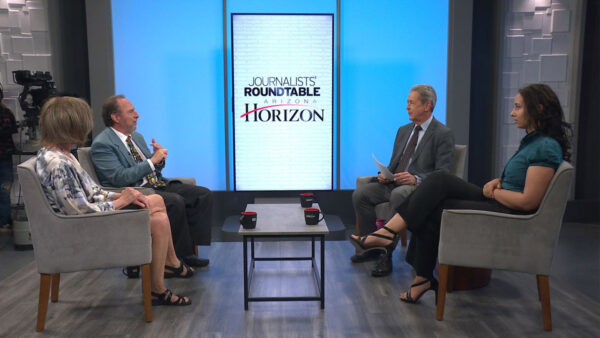Airline Industry
In the second part of our series, we examine the struggling airline industry. As fuel prices soar, many carriers are charging new fees and cutting services. We look at the state of the industry, and what you can expect the next time you fly.
>>Ted Simons: Airline experts say every dollar of your airfare now goes toward fuel. That means all the other costs related to flying have airlines in the red. As we continue our series "Fueling Trouble", we examine how the cost of fuel is affecting the airline industry. Merry Lucero reports on ways airlines are trying to gain revenue.
>>Merry Lucero: Airlines have been losing billions of dollars even before the increase in fuel costs. But the skyrocketing price of fuel is now changing the airline industry in several ways. One, shrinking airplanes, says AAA Arizona Senior Vice President Jim Prueter.
>>Jim Prueter: Some of the things that they are doing -- Northwest is getting rid of all their 737, and flying smaller aircraft. So you're gonna see a lot of smaller aircraft. Why? Because it's easier to fill up fewer seats, and so the revenue is going to be better if you fly a full plane.
>>Merry Lucero: Airlines are also getting rid of unpopular, less-traveled routes.
>>Jim Prueter: What they like to fly is the routes where the airfare is higher, where the business people travel, and because those seats are higher ticketed seats, if you can fill the first-class and business-class, and premium seats in coach, where you get a little more legroom.
>>Merry Lucero: While those changes don't directly raise prices for air travelers, airlines are passing on other costs for services that used to be free.
>>Jim Prueter: Everybody, with the exception of Southwest and maybe one of their airlines, is charging for baggage. So, if you look at $15 for the first bag checked, $25 for the second bag checked, that's each way. That's going to add $80 round trip. You know, some of the airlines were already charging for food. Now the beverages and probably the peanuts will be extra.
>>Merry Lucero: Carry-on baggage requirements have also changed.
>>Jim Prueter: We've walked into an airport at the ticket counter and box says measure bag here and set it in there. You're not required to do that. If you get down to the gate and you've gotten through security with a bag and you get to the gate and get down the jet way and to the plane and as you get on, if there's anymore luggage space, if that bag doesn't fit and they take it off, you will be charged right there for that extra bag that doesn't fit.
>>Merry Lucero: Tips for AAA for saving money when flying, everyone, even children can take one carry-on bag, so take advantage of that. Pack lighter, bringing your own snacks and food ,and use your frequent flier miles now, if you have them.
>>Jim Prueter: Many of the airlines are charging you to use Frequent Flier Miles. They have peak and off-peak times that you can use the air miles meaning one round trip ticket may be between thousand miles and different date 50,000 miles. To the extent you can plan ahead on the frequent flier miles, use them.
>>Merry Lucero: Another tip, if you don't have to fly at the end of the month, don't.
>>Jim Prueter: The likelihood of your flight being canceled at the end of the month is significantly higher than any other time of the month because it's the pilot's get too many--or they reach their maximum number of air miles or hours that they can fly, there's not as many pilots available to fly at the end of the month. You see higher cancellations at that time.
>>Merry Lucero: Shopping online for the ticket or using travel agent can save you fees, and when you buy your ticket could dictate your biggest savings.
>>Jim Prueter: When you are shopping for an airfare, I'm telling you today: don't wait. Airfares will only go up. We think this Fall, they will be very expensive, and it can go up by $200. What I would advice you now. If you are thinking you want to travel at Thanksgiving or Christmas or Easter or winter travel, buy your tickets now. If you see a good fare, grab it. Don't play the hunch. I'll wait another week and see if it comes down. If will not come down most likely. Buy that airfare.
>>Ted Simons: Here now with more on how the cost of fuel is affecting the airline industry is Michael Pearson, an Aviation Law professor at Arizona State University. Good to have you back on the program. Thanks for joining us.
>>Michael Pearson: I'm glad to be back, Ted. Thanks for inviting me.
>>Ted Simons: You bet. What is the state of airline industry?
>>Michael Pearson: It's bad, and I predict in the short and long-term, in the next five-year period, it will be worse.
>>Ted Simons: Why is that?
>>Michael Pearson: The industry, as a whole, is greatly affected by the fuel prices, as your series mentioned. Basically, there are four main factors drive the industry, the way it's structured now. You have the economy which, of course, getting some negative indicators. You have the number of participants, number of folks flying the same routes. Labor costs and oil prices. Labor and oil prices, fuel prices are traditionally the highest costs of an airline. You have those four indicators. They are all what I call negative downward trend, which leads to bottom line that it will get worst before it gets better, unfortunately.
>>Ted Simons: US Airways CEO Doug Parker quoted not too long ago, saying there was a severe industry crisis. Parker was then quoted, rather recently, saying that he could actually see profits, a return to profits by next year. Which Doug Parker has it right?
>>Michael Pearson: Well, if I was Doug Parker, with all due respect to Doug, I would probably be saying the same thing. I think unless one of the four factors I mentioned, US Air, specifically, is able to get grasp on. They have done labor and costs reduction. The cost of oil is outside of their control. Unless some things turn around here, the way the industry is currently configured is not sustainable in the long run.
>>Ted Simons: I was going to ask you about that. On average, I read it takes $300 in fuel for every passenger on a flight. We're talking combined, not just the hour flights but six-hour flights. 300 bucks for fuel per passenger?
>>Michael Pearson: Obviously, as the fuel prices change, that figure changes. Depending on the length of the flight, I would assume its right in today's economy.
>>Ted Simons: What did Southwest do right when it comes to fuel prices. Talk about hedging.
>>Michael Pearson: Southwest back in 2000, 2001, took a very aggressive stance on long-term supply contracts to lock in lower cost for the jet fuel that they use. They have probably have the best folks in the industry of being able to do that. Unfortunately, they don't have unlimited long-term fuel contracts. Yet, Southwest, by far--I don't want to say the other analysts are not proficient , but Southwest is a leader from a proficiency standpoint of being able to pick when to buy fuel and lock in long-term fuel contract.
>>Ted Simons: Sounds like they know when to gamble, and know how to win.
>>Michael Pearson: So far they do. It could be completely random statistically, buy so far, they have been on a winning streak.
>>Ted Simons: The concept of cutting capacity: fewer seats makes for higher demand and higher fares and healthy airlines. Is that a viable dynamic?
>>Michael Pearson: It's certainly one of the factors. The industry, as a whole, has 15-20% excess capacity. They need to reduce. They realize that. The folks on these airline companies are savvy businessmen and fairly bright. United just cut between 5,500 to 7,000 jobs directly related to cutting back capacity. They have grounded some of the aircraft, the fleets that they can. So cutting back on the capacity is one of things that I mentioned before. Serving areas where you can save costs in. If you reduce the number of seats, your costs per seat mile and filling with paying passengers, it's certainly one thing the industry has to do. However, that's not possible to continue to do ad infinitum, forever. Eventually, you reach a level where you can't cut any further, unless those other factors I mentioned, the oil prices, the state of economy as a whole, and further labor costs which have been tremendous concessions across the industry. Unless some factors turn in an upward trend, further consolidation is going to occur. It will be known as a natural oligopoly or monopoly, where the market force drives the weak sisters out of the competitive environment.
>>Ted Simons: Cutting back on the services, cutting back on all sorts of things, and new fees being thrown in. Again, is that viable? We'll go back to the cutting capacity as well, with raising fares and cutting flights. Makes business sense perhaps, but as Joe and Jane airline traveler. They're going to go, wait a minute, I'm paying more for everything? I'm not sure I want to fly anymore.
>>Michael Pearson: You bet. Economists calls the elasticity for demand for air travel. What occurs is as the price goes up, folks will look for different way to travel. They will forgo travel or drive or find another way to get from point A to point B. As the airlines determine the industry is starting to nickel and dime folks, which we are all familiar with, it disenfranchises the very group of travelers that they need in this time. It will not do any good for the branding and for the various airlines to do that in the long run. It will certainly bring in more cash in the short-term. That's what they're looking for now. They are in the desperate situation where they need to generate that revenue today. It might be short-term gain for the airlines, but long-term pain when it comes to certain demographic or market segment that they need in the long run to survive.
>>Ted Simons: Talk about any rumors of mergers, and how fuel prices are affecting those.
>>Michael Pearson: Fuel prices are affecting those. Today's in market the fuel dropped a little bit and the airline stocks went up. It's not a long-term trend if fuel prices do not dramatically drop. If some of the other factors we mentioned earlier and I won't go over those again do not change to an upward trend, there will be a natural merger or restructuring of the industry. Currently the talk is continental and united are romancing and looking at possibility. There are talks between American and some other companies. They've kept close to the vest except American is not an attractive participant to a lot of the other large airlines. It remains to be seen how the delta-northwest works out. And US air after merging is going through difficulties, too. The bottom line is there will have to be consolidation of the industry and fewer participants and supply and demand in the industry as a whole for it to maintain any type of health in the long-term.
>>Ted Simons: we have a minute or so left here. With all that's going on right now and with an industry that's having its trouble and serious once, is there talk, increase talk of regulation?
>>Michael Pearson: Yes. Politically there's talk of that. One of the short-term fixes bantered about by savvy folks in the industry is limited regulation and more slotting or assigning specific times for aircraft to fly into a certain airport in order to stabilize industry and stop bleeding. The problem with regulation it's a slippery slope. Once the camel's nose is the tent and the rest will come in. Free market certainly do not like that for just reason. Once it starts, where does it stop? Once you open the door, who knows where it will lead to. Certainly it's been bantered about.
>>Ted Simons: thanks for being here.
Michael Pearson:Aviation law professor, Arizona State University;





